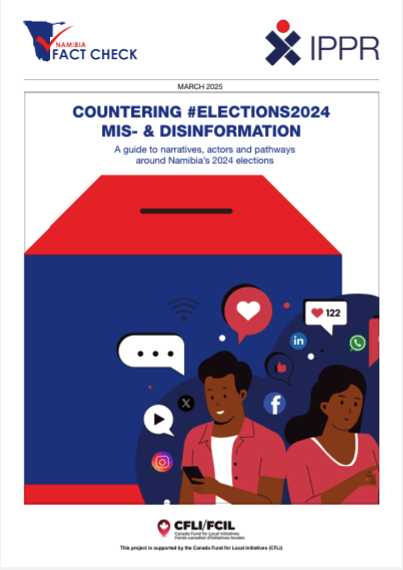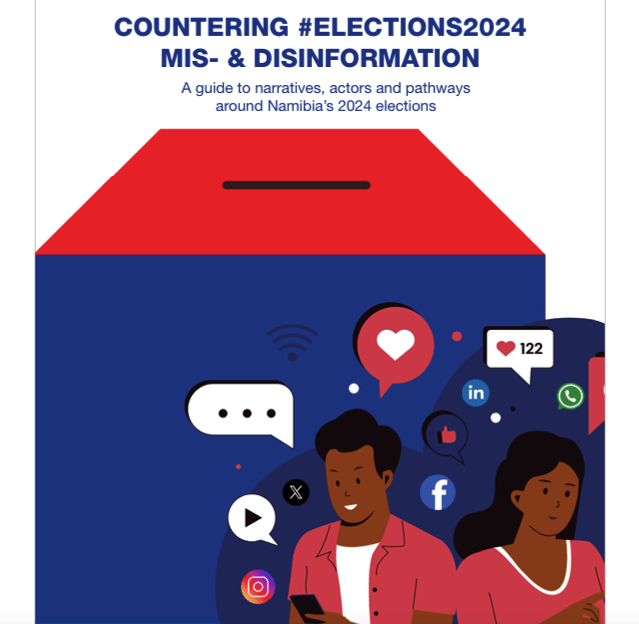Image: Namibia Fact Check / IPPR
With local and regional elections fast approaching in November 2025 we need to elevate awareness of digital mis- & disinformation
In late 2024, Namibia Fact Check started an election mis- and disinformation monitoring and tracking project titled ‘Countering #Elections2024 Mis- & Disinformation’ that aimed to expose the narratives, actors and pathways of election-related information manipulation campaigns around the parliamentary and presidential elections of November 2024.
The project was funded by a long-standing funding partner of the Institute for Public Policy Research (IPPR), the Canada Fund for Local Initiatives (CFLI).
In early 2025, Namibia Fact Check and the IPPR published a report on the findings of the project. The report is also titled ‘Countering #Elections2024 Mis- & Disinformation’ and was broken up into five bulletins, each covering a specific topic related to occurrences observed on the elections information landscape of 2024.

What we observed during #NamibiaElections2024
The report captures the following observations:
- Widespread digital disinformation plagued Namibia’s 2024 Presidential and National Assembly elections, with coordinated campaigns targeting voters, political parties, and institutions.
- WhatsApp emerged as the dominant vector for false content, due to its encrypted, closed-network nature. TikTok also played a significant role for the first time, spreading viral election-related misinformation.
- AI-generated “cheap fakes”, specifically manipulated images and videos, were used to mislead voters. While many were low-quality and easily debunked, their circulation still undermined public trust.
- False news articles mimicking legitimate journalism contributed to confusion, especially when shared by influencers or political actors. These were often amplified by poor reporting standards and a lack of fact-checking by journalists and news media.
- Both ruling and opposition parties were targeted, as were the Electoral Commission of Namibia (ECN) and other state institutions. Some campaigns were linked to foreign actors and cross-border networks.
These observations surface the following emerging trends:
- Disinformation is no longer incidental, it is increasingly strategic and systemic, with actors exploiting digital platforms to shape narratives and sow distrust.
- The information ecosystem is fragile, with low media literacy, limited fact-checking capacity, and under-resourced journalism creating fertile ground for manipulation.
- Institutional unpreparedness was evident. The ECN and other authorities lacked the tools and protocols to counter digital threats in real time.
- Narrative manipulation focused on delegitimising opponents, questioning electoral processes, and inflaming identity-based divisions. These tactics mirror global disinformation playbooks.
To counter what is happening, the report makes various recommendations to a rage of stakeholders operating on and with an interest in information integrity on the elections and political information landscapes. To see these recommendations, access the ‘Countering #Elections2024 Mis- & Disinformation’ report.
Against this backdrop, electoral authorities, the media and civil society are cautioned to be aware of and on the lookout for election-related mis- and disinformation and to attempt to counter such attacks in order to safeguard electoral integrity, which is built on information integrity, around the November 2025 local and regional elections.

